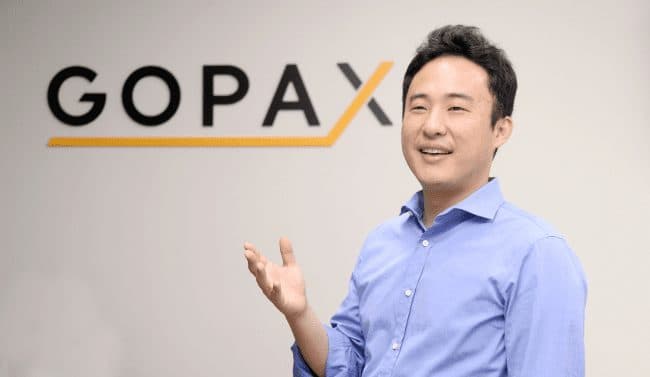DCG Invests in South Korean Streami
The terms of the deal also include an exclusive regional partnership between Streami and Genesis, a digital asset lender and DCG subsidiary.

Streami co-founder and CEO Junhaeng Lee; Source: GOPAX
- Streami’s GOPAX exchange pushes approximately $135 million in volume a day
- Seoul-based bank Shinhan led Streami’s fundraising round
Institutional interest in Korea’s digital asset infrastructure continues to grow as Digital Currency Group (DCG) announced today it had made a strategic investment in Streami, the parent company of Korea’s GOPAX exchange. Seoul-based bank Shinhan led Streami’s fundraising round.
“We expanded our investment in Streami because of their fantastic team and the incredible potential of the digital asset market in South Korea,” Barry Silbert, the Founder and CEO of DCG said in a statement. “Streami provides the critical foundation for this market to scale rapidly, and our investment will fuel its position as the most trusted digital asset platform in Korea.”
Streami’s GOPAX exchange pushes approximately $135 million in volume a day, according to CoinGecko.
Building for South Korea
This is the second major investment into digital asset infrastructure led by an incumbent bank in Korea. In March, Bithumb, which sees $4.6 billion in volume a day according to CoinGecko, attracted investment interest from Morgan Stanley. Morgan Stanley’s interest in Bithumb was also driven by new local regulation that requires exchanges to partner with incumbent banks for money laundering and tax compliance reasons.
“After observing the Bitfinex hack and China’s cryptocurrency crackdown in 2016, we decided to build the reliable cryptocurrency market infrastructure that South Korea needed, starting with an exchange,” Streami co-founder and CEO Junhaeng Lee said in a statement.
The terms of the deal also include an exclusive regional partnership between Streami and Genesis, a digital asset lender and DCG subsidiary.
Recently one of Korea’s major incumbent banks, KB, launched an institutional digital asset custody solution called KODA which Genesis would compete with.
Lobbying for change
Streami has been quite active in regulatory affairs in Korea. In 2018 when the government proposed a harsh set of laws that would see most digital asset exchanges and stakeholders banned under anti-money laundering and tax laws, Streami led an industry coalition to lobby for change.
With all the institutional interest in South Korea’s digital asset ecosystem, one might wonder what exactly are Korean’s trading? CoinGecko data shows that the Bitcoin-Korean won trading pair has approximately $1.46 billion per day in volume across all exchanges in-country.
Unlike many exchanges in the West, bitcoin doesn’t lead the way. At Upbit and Bithumb, ethereum classic leads in volume by a sharp margin.






